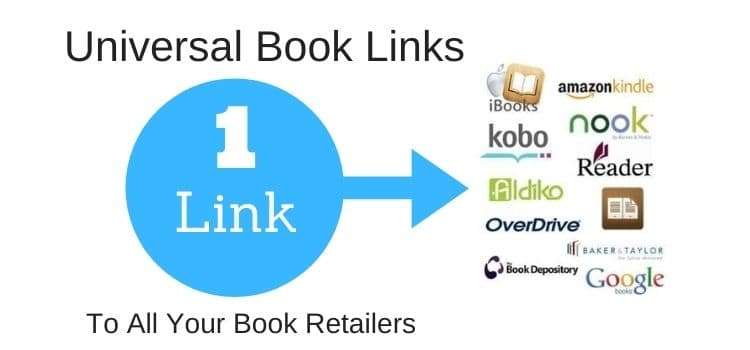
Figuring out how to promote your writing has changed more in the past few years than in the decades before.
November 2022, when ChatGPT and other AI tools first became available, was a dramatic turning point for writers and authors.
All of a sudden, anyone could generate written content almost instantly. Almost overnight, the Internet was flooded with articles, posts, and ebooks all competing for attention.
The result has been that readers and search engine algorithms are now much more selective. Getting your writing to stand out now is a challenge that all writers and authors face.
Writing is everywhere, and the competition is fierce

It’s now easier than ever to produce and publish content. Every single day, thousands of new articles, blog posts, newsletters, and ebooks are being published.
Even social media feeds are overflowing with words in threads, posts, captions, and stories, and are all vying for your attention.
The massive volume of newly published content makes it much harder for your writing to stand out.
Relying on writing promotion strategies like publishing a blog post occasionally, sharing quick social media updates, or relying on one platform just doesn’t cut through the noise any longer.
Perhaps in reaction to so much AI content, readers scroll fast and will ignore anything that doesn’t instantly attract their attention.
Search engines are now much more selective, too. They are favoring content that is not only fresh, relevant, and engaging but also from an authoritative source.
But more than anything else, the introduction of AI search has been the biggest hammer blow for writers, resulting in the loss of swathes of organic traffic.
To get your writing noticed now, you have to offer something that is unique and with a perspective or insight that AI-generated writing finds difficult to produce.
It’s not an exaggeration to say it’s a very steep challenge for writers today. Promoting your writing online now requires much more thought and adopting a variety of new strategies.
Blogs and websites are still vital, but …
It used to be so easy to get traffic from a blog, and it was like that for me.
I relied solely on traffic from Google, and only needed to add one or two articles a month to gain steady traffic, and a good income.
For most content creators and writers, it was the same before 2022.
A few posts, some basic SEO, and occasional sharing on social media were all you needed to do to promote your articles or books and attract new readers.
Readers before then often had favorite blogs they would visit regularly for information or advice.
It was easy to use your website or blog as your central hub, and backlinks from other sites or bloggers often came naturally.
Back then, search engines were far less complex. While algorithms changed from time to time, they didn’t change the basics for getting good traffic.
But now, it’s much tougher, and so many sites and blogs have experienced a huge drop in traffic from search engines.
In my case, since mid-2023, it’s been a decrease of about 80%.
But these drops in organic traffic are not necessarily due to AI-generated content flooding the web.
It’s more because search is now focused on AI providing instant answers, leaving users with little reason to click through to the original site. They no longer have to click on four, five, or six links to hunt for an answer.
That’s why the old tactics don’t work anymore and why organic click traffic has diminished.
When I check my analytics, I see lots of my articles ranking on the first page of Google, Bing, and Yahoo.
But that’s of little use when search engines answer the question I covered, and users don’t click.
Should you throw in the towel?
Is it gloom and doom?
No, but to succeed now, your content has to be highly focused, relevant, and most important of all, valuable to readers.
Publishing new articles or posts consistently and regularly is essential, but it has to be quality over quantity.
You should also think about format and readability. Good use of headings, bullet points, images, and a clear structure helps both readers and search engines.
AI systems (like Google’s AI Overviews) often pull these structured formats to use as a direct answer, increasing the chance of a click-through or citation. It applies equally to content writers and authors promoting a book.
But here’s the good news.
AI search assistants such as ChatGPT, Perplexity, and Copilot are beginning to send clicks and traffic to websites and blogs, and the trend is slowly upward.
And that’s the future.
Forget all about the ten blue links and getting on page one of Google, and concentrate on making your blog or site more valuable and noteworthy for AI search.
Recalibrate your channels: Where to get traffic beyond Google and Facebook

How to get readers for your writing and books has changed, especially when it comes to the channels you choose.
Google and Facebook might have been all you needed in 2020, but that approach no longer works.
The best approach now is to widen your use of platforms and traffic sources as much as you can.
That’s what I’ve been doing for the last couple of years.
I ignored Bing for years. But now I’m thankful for the traffic it delivers, and I have focused a little more on what content Bing favors.
Another win has been Pinterest. I rarely looked at it before, but it now delivers a couple of thousand readers every month. Think of Pinterest as an image search engine rather than a social platform.
Other avenues I’ve been paying more attention to are Medium, LinkedIn, Reddit, and Quora. For authors, Goodreads is another channel worth using for author promotion, even if it has a checkered past.
Recalibrate your strategy and thinking from getting 1,000 readers or site visitors from Google, to getting 100 from ten sources, to reduce your reliance on Google traffic.
If you use analytics, track where you get your users from. Then focus on platforms, formats, and topics that work, and especially ones that are improving.
All you can do now is reinvent your approach to writing and book promotion.
Repurpose your content: Reuse your strongest writing for new platforms
But you don’t have to start from scratch with every avenue. You can repurpose your existing content to promote your writing.
You can trim your blog posts to suit social media threads. Or use them as a base for videos, or turn them into newsletters.
Publishing your existing content on Medium is quick and easy using the import function. But it’s always best to edit it a little and use a different title.
Reuse what works, which is almost always your strongest and best-performing content. Find as many ways as you can to recycle it for new platforms and readers.
Instead of chasing easy clicks (which aren’t easy anymore), think about creating content that readers and AI systems recognize as quality writing.
It could include personal case studies or experiences, original research, or deeply held opinions. Then push it as far and as wide as you can.
Your blog or website is still your hub, but you want to create as many entry points as possible.
Six quick questions and answers
1. Why is it harder to promote your writing today than a few years ago?
AI writing tools have led to a flood of online content. But the biggest cause is that search engines now deliver instant answers.
That’s why you get fewer clicks now and face more competition. You have to prove that your writing is genuinely useful and authoritative, and then, unfortunately, hope for the best.
2. Can you still rely on a blog for organic traffic?
Yes, but not in the same way as a few years ago.
Your blog can still attract readers, but you need to publish consistent, valuable, high-quality, and focused content that search engines and AI assistants consider worth recommending to readers.
3. What platforms can bring you traffic besides Google and Facebook?
Bing, Pinterest, Medium, LinkedIn, Reddit, Goodreads, X, and Quora can all help you reach readers. Each one has a different audience, so using several reduces your risks of relying on a single platform.
4. What type of content helps you stand out from AI?
Anything that clearly shows your experience or knowledge will help promote your writing or books.
Personal stories, proof of your expertise, original research, or strong opinions are much harder for AI to imitate and far more likely to appeal to readers.
5. How can you repurpose your content effectively?
Select your strongest and best-performing articles or posts and rework them to use in new formats.
You can turn them into threads, short videos, newsletters, or lightly edit for republishing on Medium. Repurposing your content can help you reach readers who have never discovered your work.
6. What is the biggest mindset shift you need to make now?
The days of expecting one or two traffic sources to save the day are over. You now need to hunt for steady but smaller streams of traffic from many other places.
A small flow of new readers from several channels is far better than a single platform that no longer delivers for you.
Summary
It’s a different and tough world for writers now that changed almost overnight.
The old “publish and hope” approach of publishing a blog post or an ebook, sharing it once, and waiting for Google or Facebook to deliver readers belongs to a bygone era now.
Today, you’re facing far more competition, tougher algorithms, and AI systems that answer questions before a reader even needs to click.
But that doesn’t mean promoting your writing or books is impossible. It just means you need to be more strategic. Give yourself as many avenues as possible for readers to discover your writing.
Look at repurposing what you’ve already created, and reshape it for new formats, new platforms, and new potential audiences.
Yes, I know it’s not easy, and that’s not a platitude. I struggled for a long time, and it’s only recently that the results have been positive.
Will I get back to my traffic levels of 2022? No, it will never happen. My aim is to get to 35-40% and I’m inching my way there. But at least I know that any organic clicks I do get now are much more valuable and are from more engaged and interested users.
The only way to promote your writing and books now is to find all the streets, lanes, and back alleys on the Internet that readers use and give them a good reason to read your writing.
Keep adapting, keep experimenting, and you’ll give your writing its best chance to be read in a world that’s more complicated than ever.
Related Reading: Quick And Easy Writing Promotion Ideas For Shy Writers
Share This Article


